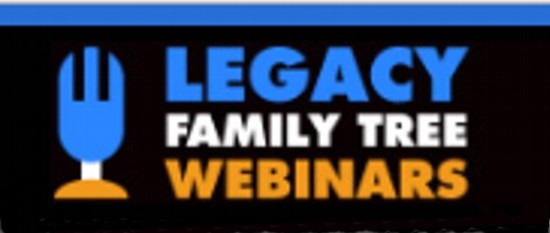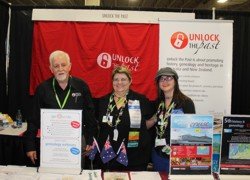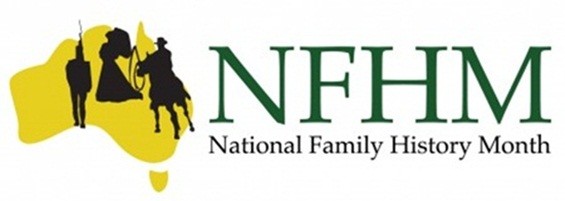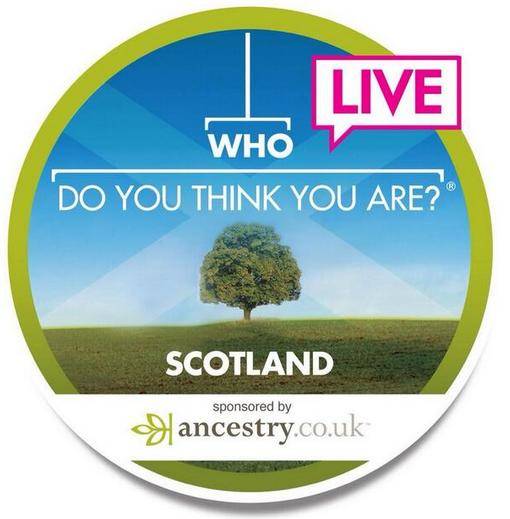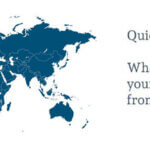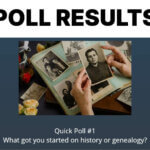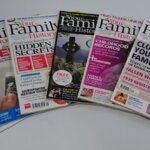2019 has arrived, and so has the new Legacy Family Tree Webinars schedule for the year.
And what an amazing year it will be. They have 85 webinars scheduled so far, which are being taken by a leading genealogy educators from around the world on topics ranging from Australia to New Mexico to France, from OneNote to Google Photos, from the DAR to Forensic Genealogy, and from DNA Painter to Reclaim the Records.
The 2019 series sees the introduction of a number of new features to their webinars. Closed captioning was a new addition at the end of 2018. This will be a feature on all Legacy Family Tree Webinars from now, making them available for the hearing impaired. For the first time they will host live webinars in foreign languages: Swedish, French, Spanish, Norwegian, Danish and Finnish. More information on this is coming soon. They also have new “themes” In addition to hosting MyHeritage, BCG, and FGS webinars which are being announced later are not in the list below, there’s now a Down Under series, regular DNA webinars, a place or ethnicity topic, as well as technology and methodology topics.
Along with many favourites, there’s also lots of brand new speakers added to the 2019 webinar calendar. One of them may be the one to help you break down your genealogical brick wall!
| DATE | TITLE | PRESENTER |
|---|---|---|
| 1 January | Researching in Australian Archives | Helen Smith |
| 2 January | DNA Rights and Wrongs: The Ethical Side of Testing | Judy G. Russell |
| 9 January | Maintaining an Organized Computer | Cyndi Ingle |
| 15 January | Visualizing Information for Genealogists | Margaret R. Fortier |
| 16 January | What Would You Do if you Had Five Days in Washington DC? | Pamela Boyer Sayre |
| 23 January | Using OneNote with your Genealogy | Tessa Keough |
| 25 January | Patriot or Not? Using the Genealogical Proof Standard on a Closed DAR Line | Elissa Scalise Powell |
| 30 January | You Can Do This: Photo Organization and Preservation | Thomas MacEntee |
| 5 February | Six Feet Under Down Under: Cemetery Records in Australia | Jill Ball |
| 6 February | DNA and the GPS Solves a Mystery: Hamiltons in Colonial New England | Shellee Morehead |
| 13 February | Reconstructing Your Genetic Family Tree | Blaine Bettinger |
| 19 February | Applying Evidence to Genealogical Research Questions | Melissa Johnson |
| 20 February | Online Resources for French Genealogy Part 1 | Paul Woodbury |
| 22 February | Using Timelines and Tables to Analyze Your Research | Cari Taplin |
| 27 February | A Month's Worth of Must-Have Tech Tips to Start Using Today | Gena Philibert-Ortega |
| 5 March | Polled! Finding Your Ancestors in New South Wales Colonial Muster and Census Returns | Carol Baxter |
| 6 March | A Guide to Third Party Tools for DNA Testing | Michelle Leonard |
| 13 March | Reclaim the Records: Using Freedom of Information Laws for Genealogy | Brooke Ganz |
| 19 March | The Five-story Fall: Correlating Indirect and Direct Evidence to Extend the Pedigree | Debra S. Meiszala |
| 20 March | One African-American family's story of migration from the South: A boarding house in Detroit | J. Mark Lowe |
| 22 March | A Terrible Malady: Disease and Epidemics in New England | Lori Lyn Price |
| 27 March | No Purchase Necessary: Free Genealogy Tools for Your iPad/iPhone | Devin Ashby |
| 2 April | One Touch Genealogy Research: How to Handle a Record Just Once | Thomas MacEntee |
| 3 April | An Introduction to DNA Painter | Jonny Perl |
| 10 April | Plain Folk: Researching Amish and Mennonite Families | Peggy Clemens Lauritzen |
| 16 April | Transcribing Documents: There is More Meets the Eye! | LaBrenda Garrett-Nelson |
| 17 April | Boost Your Germanic Research: Understand Historical Jurisdictions | Teresa Steinkamp McMillin |
| 24 April | Comparing the Genealogy Giants: Ancestry.com, FamilySearch, Findmypast and MyHeritage - 2019 edition | Sunny Morton |
| 26 April | How I Built my Own Brick Wall | Rebecca Whitman Koford |
| 30 April | English Parish Records: More than Hatch, Match and Dispatch | Helen Smith |
| 1 May | How to Use Autosomal DNA to Resolve Historical Paternity Cases | Ugo A. Perego |
| 8 May | Surprise Webinar | by someone |
| 15 May | The 10 Most Useful Databases for Eastern European Research | Lisa Alzo |
| 21 May | Valid and Unsound Assumptions: What Was She Thinking | Jeanne Larzalere Bloom |
| 22 May | Google Drive: An Office in the Cloud | DearMYRTLE and Russ Worthington |
| 24 May | Compiling a Military Service Record | Craig R. Scott |
| 29 May | Tools for Translating and Transcribing Genealogy Records | Thomas MacEntee |
| 4 June | They Really Didn't Swim! Finding Your Ancestors in New South Wales Colonial Shipping Records | Carol Baxter |
| 5 June | Lessons in Jewish DNA: One Man's Successes and What he Learned on the Journey | Israel Pickholtz |
| 12 June | Tracking Your Digital Breadcrumbs: Bookmarks, Toolbars, Notes and Other Applications | Cyndi Ingle |
| 18 June | Using Another Library Source: The Government Document Section | Patricia Walls Stamm |
| 19 June | Researching in New Mexico | Henrietta Martinez Christmas |
| 26 June | Spreadsheets 401: Excel-lent Inspiration | Mary Kircher Roddy |
| 28 June | 5 Steps to Becoming a Good Ancestor | Marian Pierre-Louis |
| 2 July | Remedies for Copy and Paste Genealogy | Cyndi Ingle |
| 3 July | Evaluating Shared DNA | Paul Woodbury |
| 10 July | Prince Edward Island Repositories and Records | Melanie McComb |
| 16 July | Lesser Used Records for Research in the Netherlands | Yvette Hoitink |
| 17 July | Research Your Newfoundland Ancestors | Tessa Keough |
| 24 July | Should You Take the Hint? Automatic Record Hinting on the Giant Genealogy | Sunny Morton |
| 26 July | Census Hurdles: How to Jump Over or Go Around | Cari Taplin |
| 31 July | Google Photos: One Photo App the Rule them All | Devin Ashby |
| 6 August | Finding Families in New Zealand | Fiona Brooker |
| 7 August | Case Studies in Gray: Identifying Shared Ancestries Through DNA and Genealogy | Nicka Smith |
| 14 August | Basics of Land Platting - Part 1 | J. Mark Lowe |
| 20 August | Ten Tools for Genealogical Writing | Harold Henderson |
| 21 August | Bullet Journaling for Genealogy | Shellee A. Morehead |
| 23 August | Introduction to Forensic Genealogy | Kelvin L. Meyers |
| 28 August | Using Teams with your Genealogy | Tessa Keough |
| 3 September | Are You Lost? Using Maps, Gazetteers and Directories for British Isles Research | Paul Milner |
| 4 September | Combining DNA and Traditional Research: In-Depth Case Studies | Michelle Leonard |
| 11 September | Advanced DNA Techniques: Using Phasing to Test DNA Segments | Blaine Bettinger |
| 17 September | Civil Law Concepts and Genealogy | Claire Bettag |
| 18 September | Research Latin America Genealogical Resources on the Internet | Daniel Horowitz |
| 25 September | Meaningful Tables and Graphs for Correlation in Family History | Ruth Wilson Craig |
| 27 September | The Home Archivist: Preserving Family Records Like a Pro! | Melissa Barker |
| 1 October | The Stories Behind the Segments | Blaine Bettinger |
| 2 October | A Day Out With Your DNA | Diahan Southard |
| 9 October | 50 Records that Document Female Ancestors | Gena Philibert-Ortega |
| 15 October | Civil Law Records in Genealogical Research: Notarial Records | Claire Bettag |
| 16 October | Italian Civil Registration (Stato Civile): Going Beyond to Basics | Meanie D. Holtz |
| 23 October | Top Tech Tips for the Technologist and the Genealogist: 2019 edition | Geoff Rasmussen |
| 25 October | Decoding Secret Societies: Finding Your Female Fraternal Ancestors | Michael L. Strauss |
| 30 October | Seven Steps to Manage Digital Files | Denise May Levenick |
| 5 November | Trove: An Australian and Beyond Genealogical Treasure | Helen Smith |
| 6 November | Understanding Ethnicity Estimates | Mary Eberle |
| 13 November | Soldier's Homes (1865-1930): Caring for our Veterans | Rick Sayre |
| 19 November | Native American Research: Things You May Not Know | Paula Stuart-Warren |
| 20 November | A la Karte: Borders, Maps and Gazetteers for German Genealogists | James M. Beidler |
| 22 November | No Will? No Problem! | Sharon Monson |
| 3 December | Buried Treasures: What's in the English Parish Chest | Paul Milner |
| 4 December | Which Spot Does 'X' Mark, Anyway? X-DNA Testing in Action | Debra Renard |
| 11 December | Grandma's Obituary Box: The Use of Obituaries in Genealogical Research and Their Role in American Culture | Pam Stone Eagleson |
| 17 December | Marriages Here, There, and Nowhere: Finding Gretna Greens and Borders | J. Mark Lowe |
| 18 December | How to Trace Your UK Ancestry | Kirsty Gray |
www.familyteewebinars.com
Register
Sign up (it’s FREE!) for one or for all of them today and you will receive a reminder email both one day, and two hours prior to the live event. Remember to take note of what time the webinar is on, and in what timezone. Although if you do miss watching it live, you can watch it later. All webinars are free to watch for 7 days after they are recorded. After that you will need a subscription to watch them.
Subscriptions
But it’s also worthwhile taking out a subscription, and here’s why:
– you get access to all the existing 833 classes in the library (1,082 hours of quality genealogy education)
– plus the 116 webinars that will be added during the 2019 season
– plus any additional bonus “subscribers-only” webinars (hundreds of these so far) – all available for the duration of your membership
– you also get access to all 3,582 pages of instructors’ handouts plus the new handouts of the 2019 season
– this includes access to all webinars and handouts for the new Down Under series
– chat logs from the live webinars
– subscribers get an additional 5% off anything at FamilyTreeWebinars.com
– and subscribers get a chance for a bonus “subscribers-only” door prize during each live webinar
Interested? You should be. This is is genealogy education at your fingertips, when it suit you from the world’s best presenters. Nothing can beat that for value.
– 1 month subscription to Legacy Family Tree Webinars – US$9.95
– 1 year subscription to Legacy Family Tree Webinars – US$49.95
Webinar Brochure
Click here to print the webinar brochure to share with your friends, genealogy society, or Family History Centre.
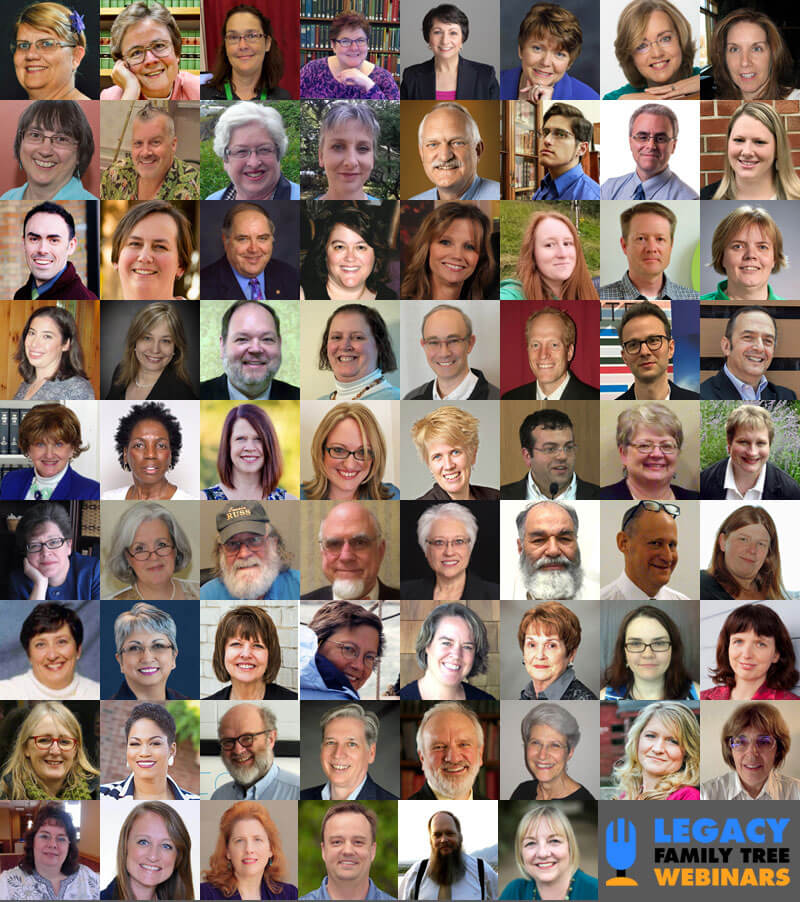
Do yourself a favour, and make 2019 the year to grow your genealogical knowledge. Afterall, the more you know, the better the researcher you’ll be.

